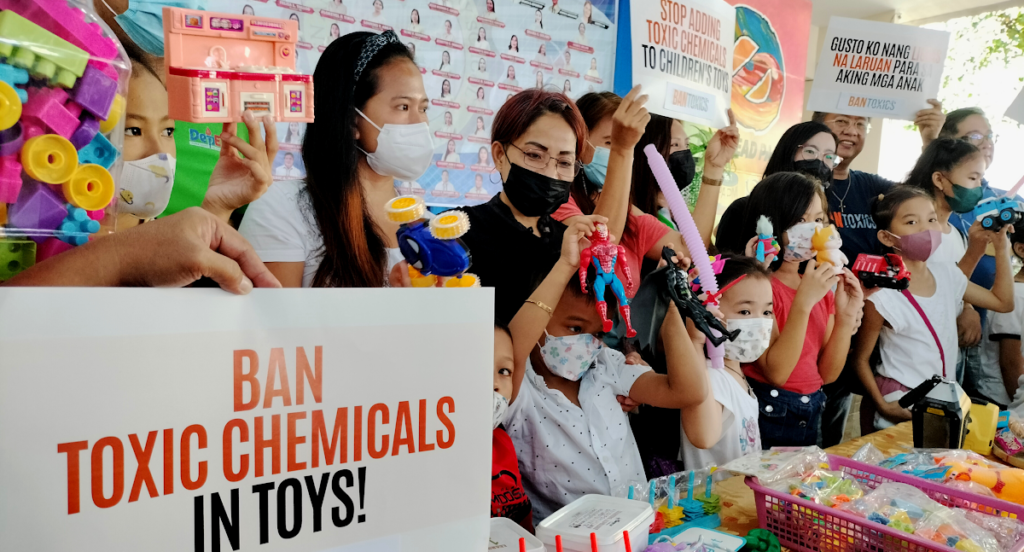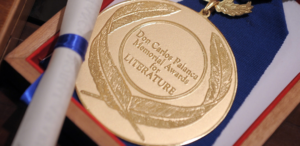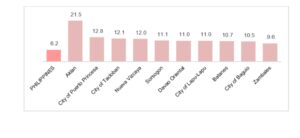In 2019, the European Environmental Bureau (EEB), an international network of environmental organizations, reported that several Chinese toy models were contaminated with hazardous chemicals blocked by the Government of Belgium from entering.
Toxic substances such as phthalates, which can cause damage to the liver, kidneys, and lungs, were discovered in the toys, along with boron, which can irritate the nose, throat, and eyes and might possibly cause damage to the stomach and brain.
Students at San Antonio Elementary School (SAES), along with their teachers and parents had their toys checked for possible toxic chemical content during a ‘Toxic Toy Clinic’ initiated by toxic watchdog group BAN Toxics.
In accordance with the celebration of Consumer Welfare Month in October 2022, BAN Toxics organized a community event for 500 students, teachers, and parents from SAES, La Consolacion University Philippines (LCUP), and Dr. Yanga’s College Inc. (DYCI) to bring attention to the need to protect all children from toxic chemical exposure in toys and to raise awareness about the health impact and child development issues it might bring to them.
TOYS CAN KILL CHILDREN
In a statement, BAN Toxics Toxic Campaigner Thony Dizon expressed concern about the safety of children due to the pervasive presence of toxic chemicals in toys, especially as the Holiday season approaches.
“As much as we want to make our children happy by giving them toys as gifts, especially during holidays, we must also ensure that they are safe and away from danger,” Dizon said.
“Toys are supposed to give joy to children and help them stimulate their imaginations, not make them sick,” he added.
SCIENTISTS WARN ON TOXIC PLASTICS
Among the speakers in the event were Dr. Lawrence Belo, Assistant Professor at the Department of Chemical Engineering from De La Salle University Manila, and Dr. Germin Louis C. Apostol, Environmental Health Specialist of Center for Research and Innovation in Ateneo School of Medicine and Public Health.
Dr. Apostol emphasized the negative impacts that exposure to harmful substances in toys may have on children’s health and their growth development.
“We are now living in a toxic world and Filipino children, our children, are especially vulnerable to the negative health effects from multiple exposures in school, at home, and in the community environments. When we protect the health of our environment, we protect our children’s future,” Dr. Apostol said.
During the program, BAN Toxics, Dr. Belo, and Dr. Apostol provided everyone with suggestions and gift alternatives for the upcoming holiday season when purchasing gifts for children.
TOXIC – FREE SCHOOLS
Toxic Toy Clinic was an event aligned with BAN Toxics’ long-term program, Toxic-Free Schools Program (TFSP), a campaign designed to raise awareness on the negative effects of toxic chemicals and wastes found in schools, homes, and communities.
The initiative aims to promote environmentally sustainable and safe alternatives, as well as educate students and members of the community on sound chemical and waste management.
The Toxics-Free Schools Program is concerned with toxic chemicals and wastes that may be present in schools, homes, and communities. Children’s health is jeopardized by their exposure to toxic chemicals such as lead, mercury, phthalates, cadmium, and arsenic.
The program also promotes responsible waste management at school and at home.
This includes proper waste segregation, the 3Rs (Reduce, Reuse, and Recycle), urban gardening and composting, and reducing the use of single-use plastics.
PUBLIC AWARENESS ON TOXIC TOYS
In line with this, EEB also released a public information film the same year to raise awareness about the use of harmful chemicals in children’s toys.
“We want to ensure that not only the parents and guardians, but also the children themselves, are well-informed about the presence of toxic chemicals in their toys, the adverse consequences those chemicals can have, and the means by which these chemicals can be avoided. Therefore, our organization will continue to provide kids with knowledge through such projects, and we hope that more schools and academic institutions will participate,” said Dizon.





More Stories
Healthcare heroes celebrated as PH commemorates ‘Day of Valor’; multi-year healthcare waste management project launched
OCD stresses need for better oil spill response, strict prevention against water pollution
PH dev’t NGOs bat for people-centered climate action and disaster response as country remembers Yolanda onslaught